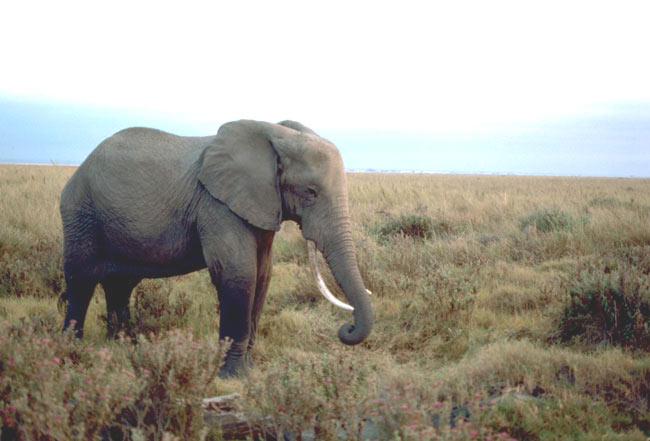Even Elephants Can't Move Mountains, So They Avoid Them

Even a small hill can mean a big expenditure of energy for an elephant.
So they avoid slopes, a new study suggests.
Researchers used the Global Positioning System (GPS) to track elephants in northern Kenya, in a region where some 5,400 of the pachyderms roam. They found that elephant density dropped off significantly with increasing hill slopes.
Could be the beasts just didn't find water up there or wanted to avoid injury. But the researchers calculate that the energy required to climb a hill could be a main factor. Climbing uphill for 100 yards would require a half-hour of foraging to replace the energy used.
"Clearly, climbing is something that an elephant should not do lightly, but should weigh very carefully," the scientists conclude in the July 25 issue of the journal Current Biology.
The study was done by Fritz Vollrath of the University of Oxford along with Jake Wall and Iain Douglas-Hamilton of Save the Elephants.
The scientists say large animals probably view their surroundings much differently than smaller creatures.
Get the world’s most fascinating discoveries delivered straight to your inbox.
- Gallery: The World's Biggest Beasts
- The Perils of Being Huge: Why Large Creatures Go Extinct
- The Ticklish Trick of Inseminating an Elephant
- Elephant Mimics Truck Sounds
- Older Elephants Smell Sexier



